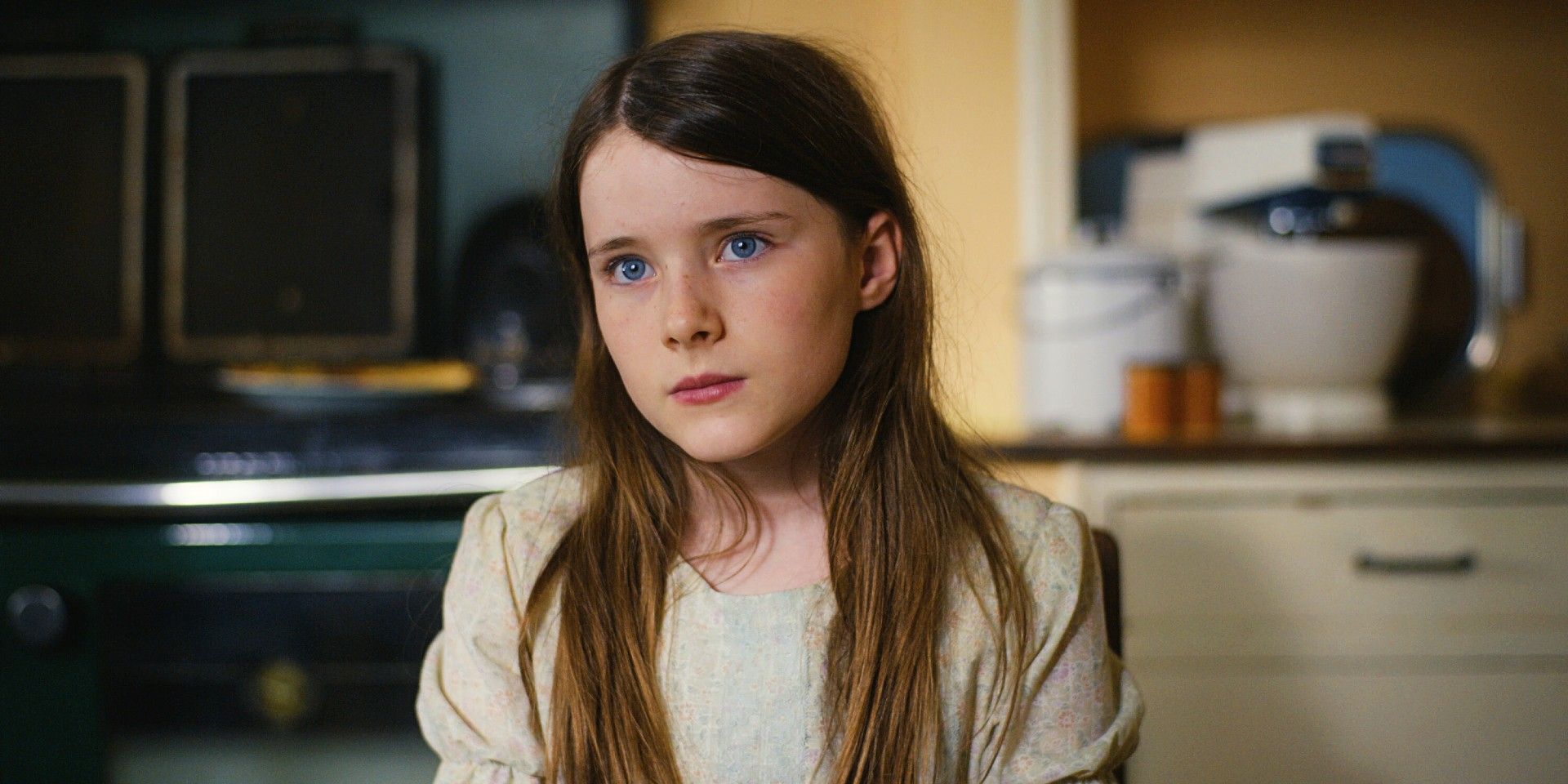In every awards season, buried underneath the biggest and most hotly-debated titles, there are some truly incredible hidden gems that might escape people’s notice. While perhaps far from underrated, director Colm Bairéad’s The Quiet Girl is certainly a treasure. The beautifully understated film is nominated in the Oscars’ Best International Feature category for Ireland, and for good reason. This is a title that sneaks in and wiggles its way into viewers’ hearts with its simple, uncomplicated story and manages to leave a searing impact. A standout of this year’s awards race, The Quiet Girl is an earnest depiction of family and unexpected connections that lingers long after the credits roll.
Nine-year-old Cait (Catherine Clinch) is viewed as something of an oddity to those around her. One child of many within her over-sized family, Cait is withdrawn and has a tendency to wet the bed. With her mother expecting yet another child, Cait is sent to live with two distant relatives for the summer, the kindhearted Eibhlín Kinsella (Carrie Crowley) and her taciturn husband Seán (Andrew Bennett). Eibhlín welcomes Cait with open arms and the old clothes from the wardrobe, whereas Seán is less appreciative of Cait’s presence. However, genuine, meaningful bonds soon emerge between Cait and her foster parents, leading to the reveal of a long-buried secret.
The Quiet Girl is a sparse production. Bairéad, who also wrote the screenplay (itself based on the short story Foster by Claire Keegan), never overloads a scene with excessive dialogue or action. In the beginning, this serves to highlight Cait’s loneliness. Bairéad stages scenes so that even when she is sitting among her siblings, she is clearly isolated. Director of photography Kate McCullough aids in this with wide, unmoving shots that make the most of the space, giving a clear sense of Cait’s world. The juxtaposition of Cait’s family home and the house Eibhlín and Seán inhabit — one dark and cramped, the other bright and open — tells the viewer which place brings the eponymous heroine more comfort. Editor John Murphy brings it all together in a way that gives the impression of distant memories of a childhood long past, evoking thoughts of another recent critical darling, Aftersun.
Nevertheless, The Quiet Girl is a very different movie, though both films are anchored by a strong performance from a young actor. Clinch makes her onscreen debut here, and it’s impressive to see how much she can do with so little. Cait doesn’t always speak, leaving it up to the actor to convey her thoughts and feelings through physical gestures. Over the course of The Quiet Girl, she starts to open up. Remarkably, though, the title of the film never becomes inaccurate. Instead, Bairéad sends the message that Cait’s newfound comfort doesn’t erase her inherent shyness. Eibhlín and Seán accept her for who she is in a way her primary family does not. Bairéad makes the development of Cait’s relationships with the two adults feel organic and earned. There’s no dramatic coming together, but instead a series of soft, poignant moments. A cookie left as a treat, a makeshift competition involving chores. The little things that make up the domesticity of a quiet life.
The most dramatic part of The Quiet Girl (save for a brief moment that could’ve gone in a devastating direction) lies in Eibhlín and Seán’s past, with the secret the two keep from Cait for some time. Bairéad doesn’t telegraph the reveal ahead of time, but when the realization comes, it makes several scenes fall into place like pieces of a puzzle. Eibhlín and Seán become full-fledged characters with vulnerabilities and wants, and it only serves to enhance their bond with Cait. The Quiet Girl steadily builds that relationship up, right until its gut-punch of an ending. There’s an ambiguous note to the final scene, one that allows the viewer to dream up what comes next.
The Quiet Girl is far from a showy drama, which could give the impression it is slight and unmemorable. The opposite is true, and in fact, its strength lies in its unfussy approach to telling Cait’s story. Like its protagonist, The Quiet Girl is quiet, sensitive, and not to be underestimated in the Oscars race. It reaffirms the idea that there is a place for everyone in this world. It’s a comforting notion after the recent years of unease and disconnection.
The Quiet Girl releases in theaters Friday, February 24. It is 94 minutes long and rated PG-13 for some strong language and smoking.



